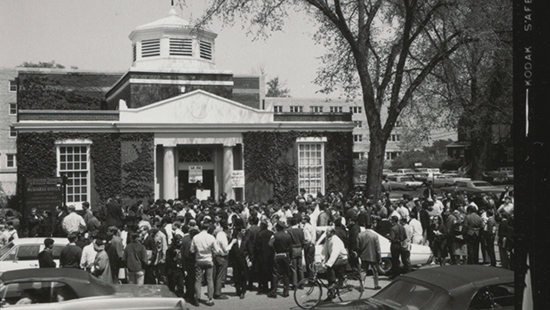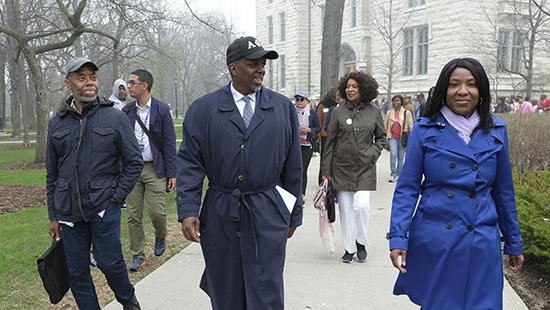In 1968, a year marked by the assassination of Dr. Martin Luther King Jr. as well as demonstrations and student activism at campuses across the nation, Northwestern experienced its first major student sit-in.
More than 100 students peacefully occupied the Bursar's Office at 619 Clark Street to protest the black student experience. The occupation began May 3 and lasted 38 hours, ending with a negotiated resolution in which the administration responded to a list of eight student demands.
The protest resulted in the "May 4th Agreement," as it is popularly known, that had a significant and enduring impact on the course of the University. The takeover helped spur progress, ranging from increasing black student enrollment and financial aid, to revised housing policies and the expansion of "studies of black history and black culture," among others.
Learn more about the takeover by visiting the University Archives exhibit "They Demanded Courageously."
After a peaceful resolution that established a starting point on those and other matters, Northwestern made progress on many of the demands.
"As we reflect on the 1968 sit-in events at Northwestern, we are more committed than ever to providing a dynamic and inclusive educational experience," President Schapiro and Provost Jonathan Holloway said in a message to the campus community.
"By embracing backgrounds and viewpoints different from our own, we can challenge our assumptions, test our ideas and broaden our understanding of the world," they said. "It is only by understanding our history that we can map out a better course for our future as individuals, as an institution and as a society."
Below: Officials break ground at the Black House. NUBAA premieres a documentary film on the takeover. Photos by Jim Prisching




